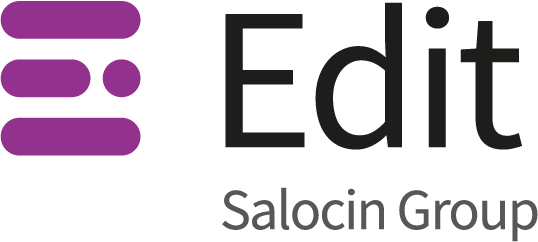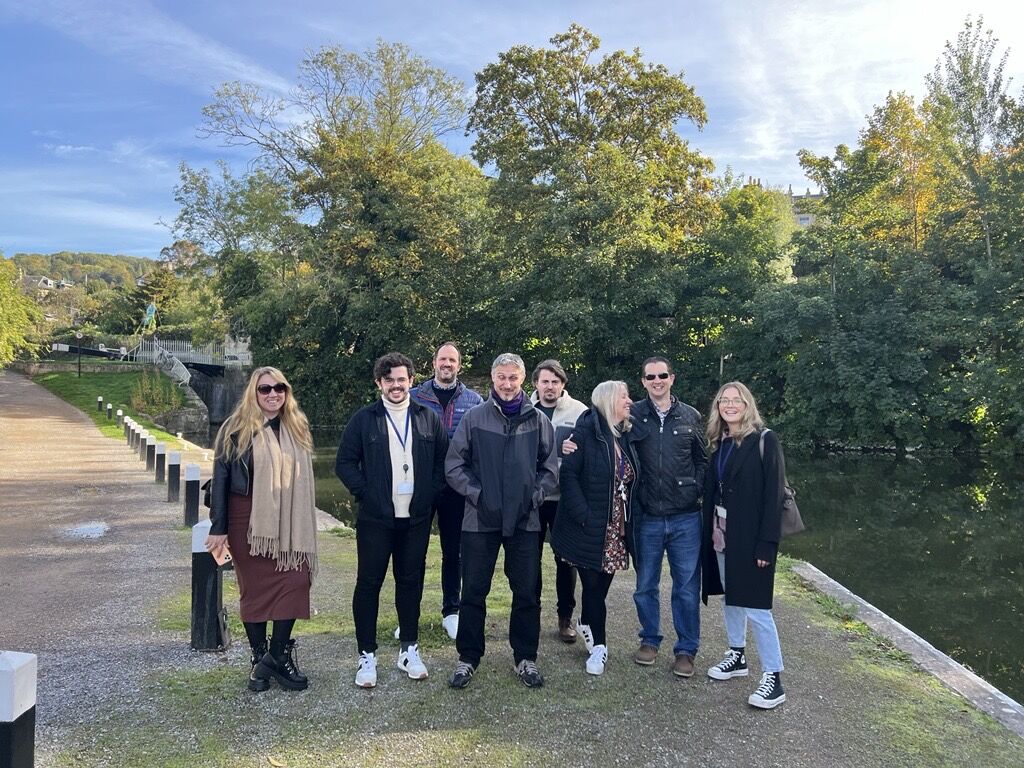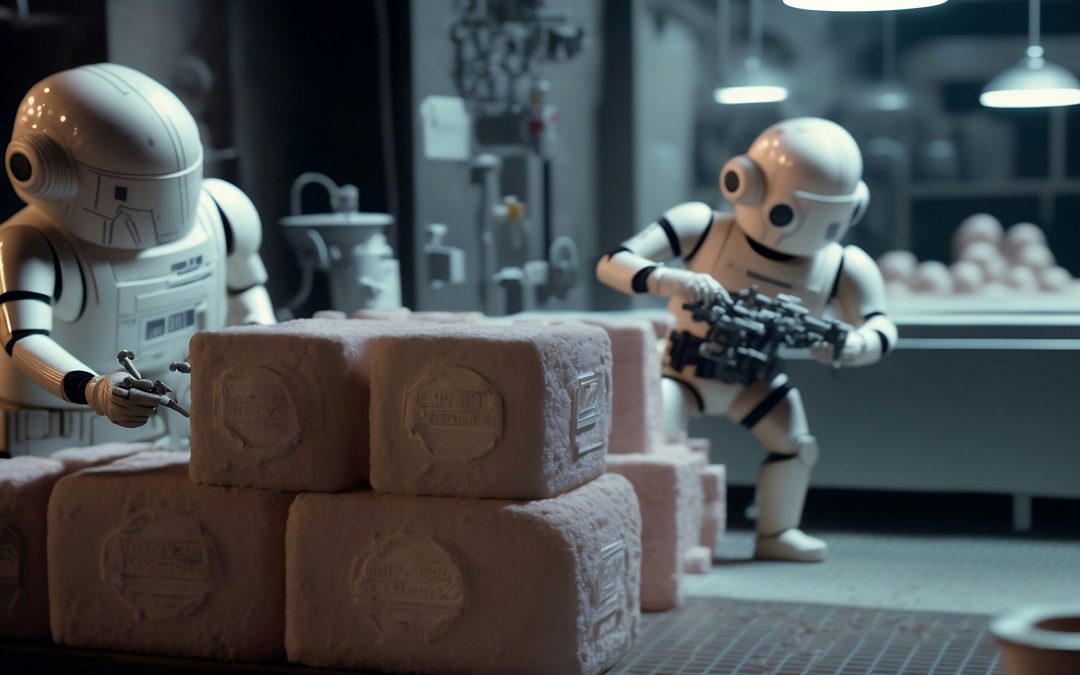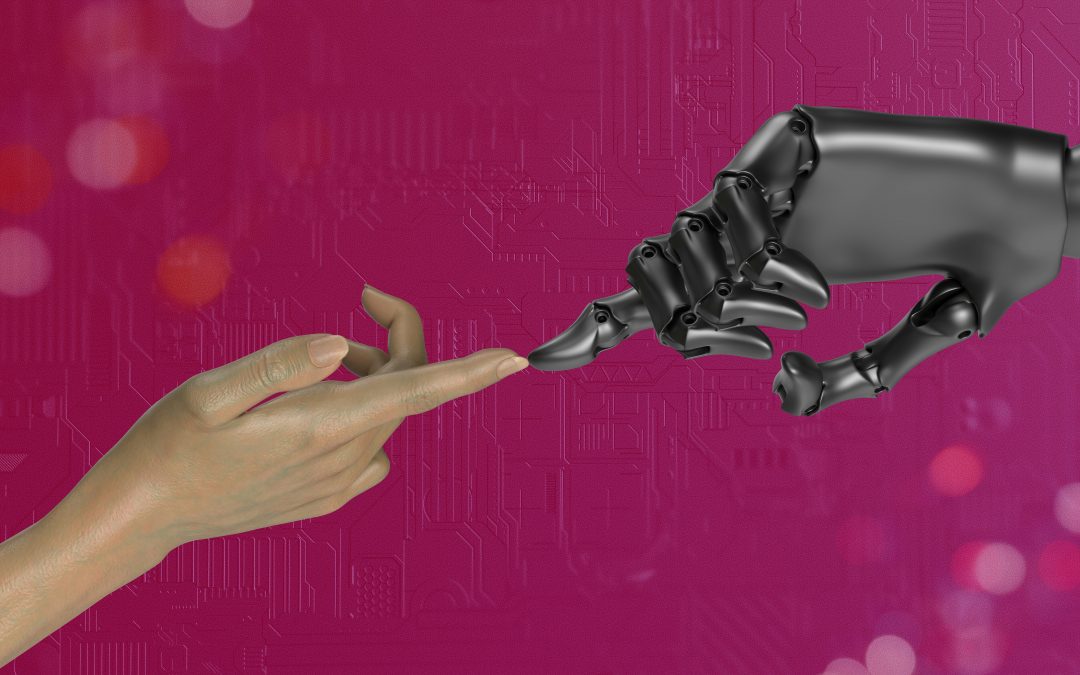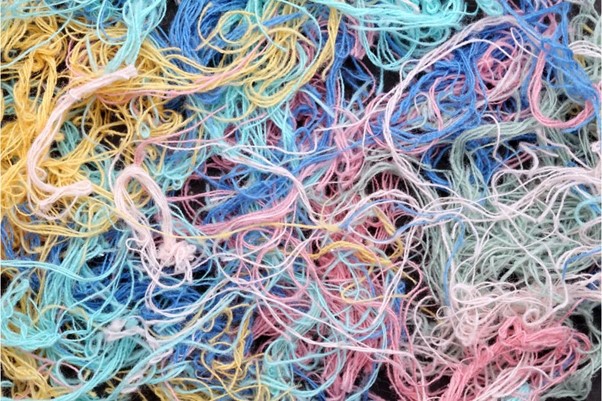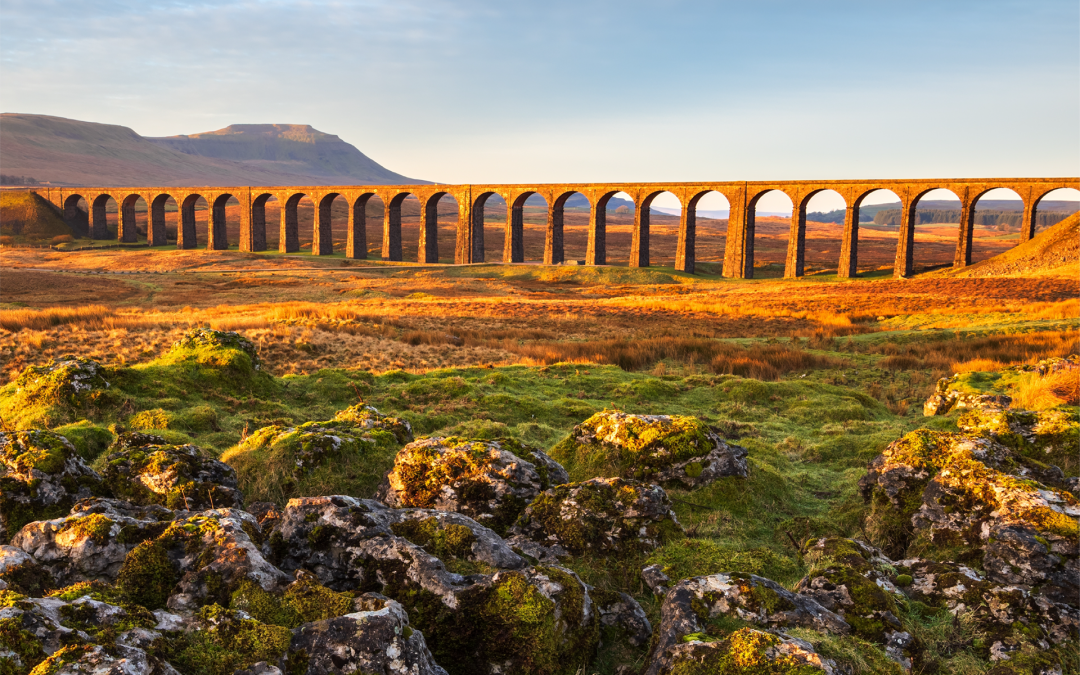Meet Andy, Edit’s Head of Engineering
We realise that a lot of job titles at Edit are, well, a bit intimidating. So, to demystify them, we’re chatting to our team to find out what they actually do at work, and in their free time too.
Hi Andy! What do you do at Edit then?
That’s a very good question. Nobody knows, including myself. My official job title is head of engineering. My background has been heavily focused on data; data manipulation and single customer views. Now commonly referred to as customer data platforms. So, I have had about 20 years of history of doing that on and off. And then more recently I moved to the Head of Engineering role.
I have team of 11 engineers, I provide them with input and guidance on best practice, I provide line management for them and act as a conduit through to the growth team – picking up RFPs, response documents and such like. My time is typically split about 30/30/30 on all those things.
The team are massively focused on data. Data is the cornerstone of Edit – it’s our bread and butter; collecting data, pulling it together and then making that data valuable by augmenting it, enriching it and then shoving it out either into a marketing application or by generating data sets that will drive analytics.

You said that you’ve been doing this for around 20 years, have you seen things change a lot during that time, or are the principles the same?
People now realise how important this kind of work is. Although we do still hear “I’ll go and do this stuff myself. How hard could it be to get data from two different places? To match data to an individual to produce a single customer view? How difficult can it be?!” It is quite complicated! But in terms of how it’s changed, the fundamental principles of what we’re doing haven’t really changed at all. I think what has changed is there’s a massive realisation that it is actually a very important thing to be doing. It gives you a true picture of who you’re dealing with as customers, or potential prospects from a compliance point of view.
We’ve also gone from a lot of on-premises infostructure and doing our own coding, to borrowed architecture and off-the-shelf software.
You only need to look at the likes of Microsoft and Salesforce, and how much emphasis they’ve put on this kind of stuff over the last few years to realise that it’s an important space to operate in.
I’m guessing that you really like this line of work as you’ve been doing it for 20 years?!
I just love data. It sounds like a really nerdy thing to say, I know. There are a couple of things that I like about it. I like how you start with a hypothesis, that the data is going to tell me this or that. I love it when you do the work, and actually know, the result completely disproves what you were thinking.
And then the other side of it is tackling the technical issues of “How do I get data from here and data from here, and put it together and make sense of it? How do I integrate that, enhance it, do all the things that we do to it to make it valuable?” You go from data to information. The data itself might not actually tell you anything. What you want to do is get value from it. My job is the nuts and bolts of doing that.
Is there anything that you don’t like about your job?
The only thing I don’t like is my calendar. It’s jam packed. Time management is the bit I struggle with.
Data is at the heart of everything we do for ourselves and our clients. Therefore, if you’re involved in the data, or the management of that data, you end up involved in lots of things that are going on around the business… I wouldn’t say I dislike it, exactly, but it certainly can be a big distraction!
And is there anything that you’re particularly excited about, or hopeful for, within the industry?
This was seen as a bit of a cottage industry around 20 years ago – maybe even up to 10 years. There were small organisations working in the field that we’re in; the single customer view, customer data platform world and all the bits that are associated with it. And now, CDP etc. is at the forefront of people’s minds, so it’s quite nice to see that.
What we’ve been banging on about for a good long time, is now actually viewed as important by these large organisations. So it’s nice to be involved in that.
We’re very heavily involved with Microsoft in terms of the development of their own CDP platform and they spend a lot of time talking to us about the direction of that. We get to see a lot of the preview features and we have a really, really good relationship with the team who built it. It’s great to see them making investments in the products and technology we use.
We want to be different from anyone else who’s using those products. We want to add value. So having those sorts of relationships allows us to understand the direction of travel. And therefore, know where we can bring extra value – that other organisations aren’t providing.
On a separate note, I’m excited about AI. We’re beginning to see AI embedded in the tools we use, things like Power BI and Dynamics and within customer insights and marketing. That means that we can work a bit more efficiently. So things that were more difficult, or a hurdle to adoption, can be achieved more simply.
I’m also pleased to see a transition into, predominantly Microsoft, cloud solutions and architecture. That has been a massive influence on the work we’ve done. The whole team are certified in one way or another in those technologies. Cloud architecture gives you the ability to do things that we’d never have been able to do cost-effectively otherwise.
Wow, was it a challenge to get the whole team certified?
They all enjoy learning and using new technology, that’s the key to it. Between us we have something ridiculous like 300 years’ worth of engineering experience. They’re all really interested in expanding their knowledge and learning new stuff.
Gaining new skills is vital for us as a business. We have really switched on clients who come and ask us about this new bit of technology or whatever, and we need to know about it! So yeah, just keeping track of stuff is just part of the job really.
So being inquisitive is key. Is that led you into this kind of line of work in the first place?
I’ve got a strange history. I’ve got a degree in zoology. I’ve loved natural sciences. And then of all things, I ended up working at Harrods on a management training programme, which was a bit strange.
While I was there, I realised that they had an IT department which was quite large. I ended up working, doing testing on their back office system. Then I worked in the client server development team, which is basically the coding team for a couple of years. That was when I found the bit I was interested in – the data. I just loved working with data on daily basis.
I’ve worked in various jobs since then, just buried in databases, optimising and fine-tuning and working out the best ways of doing stuff.
How did you go from doing a degree in zoology to a Harrod’s management training programme, what happened?!
I got to the end of my degree. And I thought, you know what? “I’ve had enough of studying.” I had this horrible realisation that actually, to make good use of my degree, I was probably gonna have to do either another two or three years studying before I’d be able to use it to get a job.
I just couldn’t face any more learning it’s quite a long time, isn’t it? From five years old to 20 without a break. So I just went and did something different. I just happened to know someone who worked for Harrods. I went and had an interview and got a place on the scheme. It’s quite a diverse business, you think it’s just a big shop, don’t you? But actually, when you get under the cover of things, you realise that it’s massively diverse.
I worked with a great bunch of people there, I’m still in contact with them now, good times, very good times.
I’m guessing as a child you loved science and animals. This can’t have been what you wanted to do when you were little, so what did you want to do?
It’s funny, isn’t it? My job didn’t even exist when I was a child. The world’s a different place now.
When I was little I love bicycles and mechanical things. I would have probably been quite happy being a bike mechanic. I worked on cars with my dad, elbow deep in grease, removing engines , fiddling with bicycles and all that sort of thing. I liked taking things to bits and fixing things. Still do now.

But now you do it with data too! What else are you passionate about? Other than taking things apart…
I like music. I’ve got quite diverse taste when it comes to music and go to quite a few gigs. That interest has deepened in the last few years due to my son. He’s 17 and in a couple of bands, so I’ve spent a lot of my time acting as a part time roady, driving vast amounts of electronic kits, amplifiers, guitars and basses and whatever else, around the South West for him to go and play. He’s just sent me a WhatsApp actually, telling me he’s put this album out inspired by video games. He’s written music for all the sorts of scenarios that you have in video games. He plays all of the instruments; guitar, keyboard, bass, banjos, drums. And a whole load of electronic stuff.
Do you play instruments?
I play the bass guitar very badly.
What else do you enjoy doing?
I do a bit of archery. In my youth I used to be pretty proficient. I started shooting again a few years ago I quite enjoy that. So I’m all prepped for the zombie apocalypse.
And then there’s cats. I’m not going to say I’m a serial collector of cats cause that sounds odd… but yeah, we’ve got four cats between us.
I absolutely love cats, I think there should be more cats and less people. One of the things about lockdown was that I spent a lot of time sat my wooden box /office in the garden. Much of the time it was just me and my best moggy, so I appreciated his company.
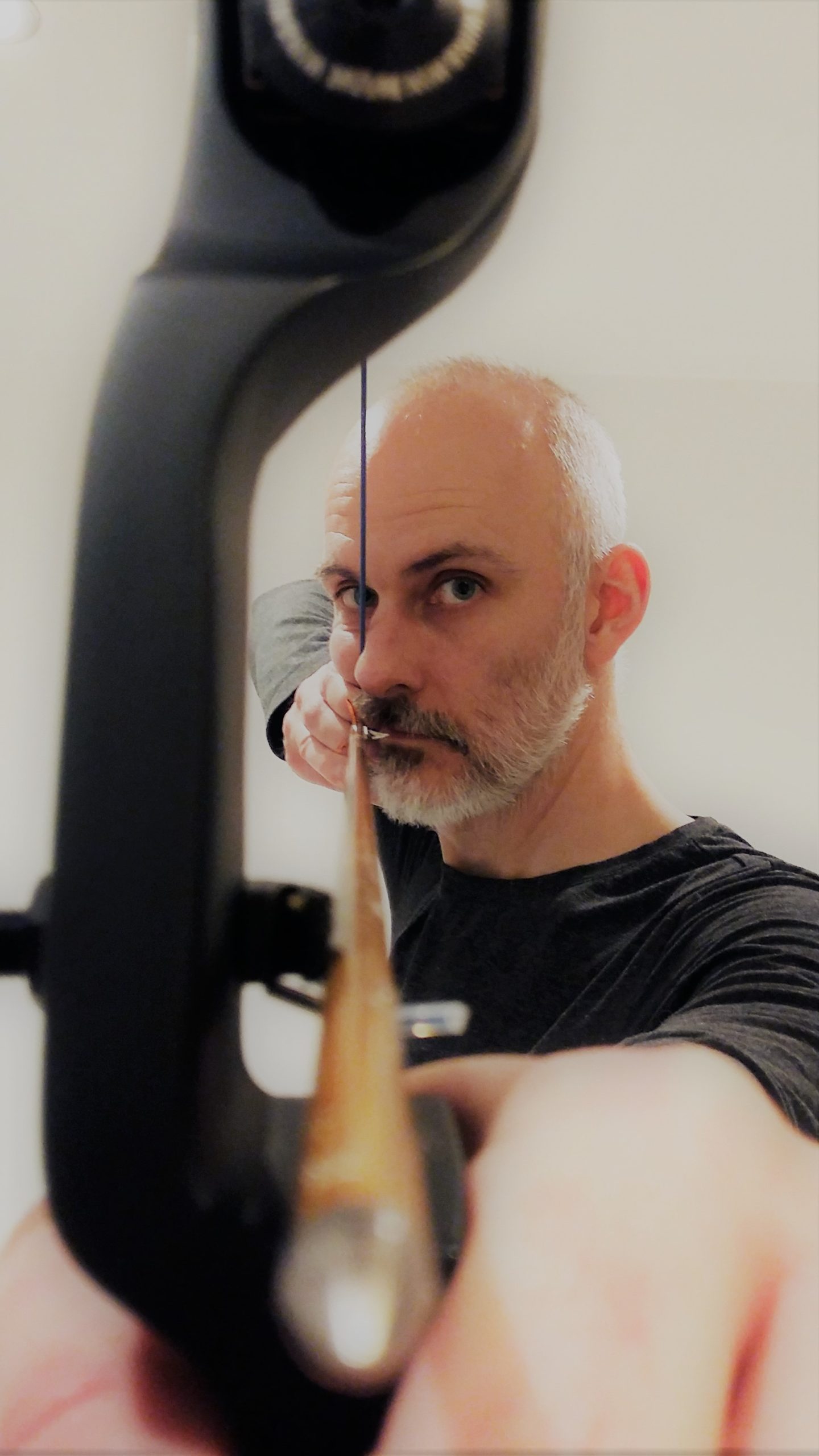
One of my cats is called Gary of all things, would you believe?
So that’s Gary and Pebble. My wife’s cat is called Bailey, but she gets called Lil or bail. And then there’s Loki.

Now for the best question: If you could only eat one meal for the rest of your life, what would it be and why?
Well, I have thought about this. My usual measure of a good restaurant is “Can they do a decent steak?”
If they can get that right, most other things seem to be OK, but I probably wouldn’t wanna be a massive carnivore for the rest of my life.
I do really like Asian food. I’m a massive Wagamama’s fan. I could probably eat it every day of my life and not get bored of it. So I’d probably pick some sort of noodle based dish with lots of different flavour in there. I don’t think you can go wrong. I think it would be quite difficult to get bored of that. Maybe a few little pickles on the side.
And the final question, what’s your biggest or best insight, work-based or otherwise?
Always check your cutlery, if there’s filth on the cutlery, you don’t want to eat there.
